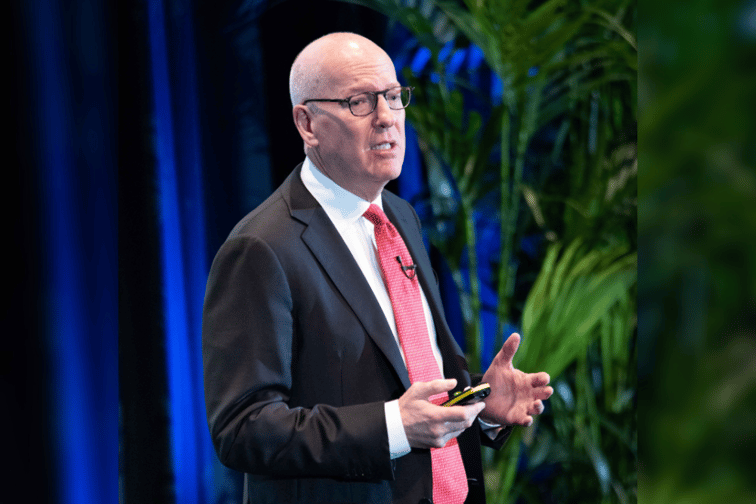

We are currently living through “the age of risk” and as societies, we’re “ill-prepared” to deal with these massive exposures – at least, that’s the opinion of one leader in the global insurance industry, who spoke about the challenges in the current insurance and risk landscape during an interview at the Future of Insurance USA virtual event.
The issue, says Dan Glaser (pictured), president and CEO of Marsh and McLennan Companies (MMC), is, “We’re very good at thinking through risks that happen and managing those risks in the future. We’re not so good at predicting [them],” pointing to the elephant in every room these days, the COVID-19 pandemic.
“We could have all thought about the possibility of a pandemic occurring, but no-one really thought about the possibility of a global government shutdown. The second piece was just as stunning and unforeseen as the pandemic itself,” noted Glaser, pointing to all the additional risks that have continued to impact global societies alongside the pandemic, such as climate change, cybersecurity, social dislocation and unrest, as well as the fact that many countries today are operating wholly in their own self-interest, which introduces a different set of risks.
The impacts of these exposures have become evident in the insurance market this year, as prices in many lines of business continue to increase and businesses across industries struggle to find coverage that would pay-out for pandemic-related losses. The scale of pressure has been tracked in Marsh’s quarterly Global Insurance Market Index, which, for Q3 2020, revealed a 20% surge in global commercial insurance pricing. This figure marked the twelfth consecutive quarter of price increases, with the third-quarter rise in pricing being the largest year-on-year since the inception of the index in 2012 and following year-on-year increases of 19% in Q2 and 14% in Q1.
While the market was hardening before the coronavirus hit, “COVID acted as an accelerant,” said Glaser, particularly for property (up 21%), financial lines (up 40%), and casualty (up 6%). In this environment, MMC is telling clients that “this is a time to lean heavily on your broker,” explained Glaser. “Get started early on renewals, be realistic, know what your must-haves are, try to maintain your relationships – this is not the time to burn relationships because you don’t like the outcome of a negotiation – and frankly, look at ways to retain more risk.”
Glaser also noted that digital capabilities are becoming “table stakes” in the current environment, especially as customer experience has taken centre stage in the insurance transaction. Introducing digital tools at an insurance organization can help spur growth in revenue, as well as improve efficiency and lead to better client outcomes, which is why MMC has been investing heavily in digital enablement. However, that doesn’t mean that the roles of agents and brokers will be replaced by techy tools, Glaser added.
“It’s complicated to go through a program, and many times a client would prefer – even a small client – to get somebody else to do the work,” he said. “Agents and brokers have an advantage because it’s a situation of ‘answer 10 questions and I’ll give you 10 quotes.’ Well, an individual insurance company has a proprietary system, so maybe you answer 10 questions, and they’ll give you [just] one quote, so there’s a bit of an advantage there that will play out over time.”
